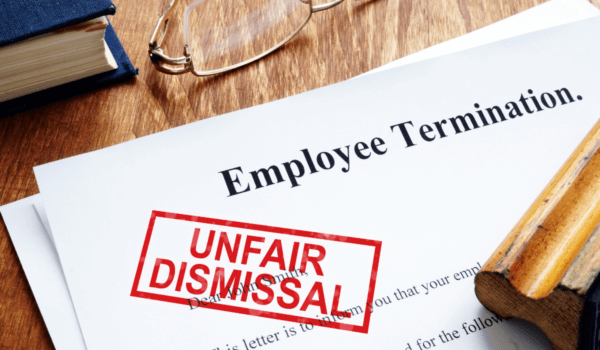
Texas is considered an “at-will” employment state, meaning an employer can terminate an employee for any reason – no matter how trivial or irrational – or for no reason at all. Termination can happen at any time during an employee’s employment and for any legitimate purpose, which makes proving wrongful termination difficult. There are some exceptions that protect employees, including discriminating against or terminating an employee based on their national origin, gender, race, color, religion, disability, age, marital status, pregnancy, or citizenship status. It is important to understand what wrongful termination is in Texas as well as what is not considered wrongful termination under state and federal law. Here are some of the most important things you need to know about wrongful termination:
1. A termination that seems “unfair” is not necessarily illegal.
Many employees feel their termination from a job was unfair, irrational, or was done out of “nowhere.” Employers in Texas have the right to fire an employee for any reason. While there are a variety of exceptions to this rule, a termination is most often perfectly legal and wrongful termination does not apply.
2. Employer breach of an employment contract.
If there is a written employment contract that promises an employee a job or job security, they are not considered an at-will employee in Texas. Implied employment contracts based on defined statements written in an employee handbook by an employer can also protect an employee from at-will termination. For example, if a company’s employee handbook states that employees can only be fired for “good cause,” that may be considered an implied contract. If an employee is fired without good cause, they may be able to bring a legal claim for breach of contract in this situation.
3. Illegal Act Exception.
A public employee in Texas can sue for wrongful termination if they have been fired specifically for refusing to perform an illegal act. An “illegal act” is any action that would create criminal liability under state or federal law. This protection is not provided to employees of private companies.
4. Workers’ Compensation Exception.
Texas employers may not terminate an employee for filing a workers’ compensation claim. If an employee was terminated and believes the reason was their workers’ comp claim, they will have to show that they would not have been terminated if they had not made that claim for wrongful termination to apply.
5. Workplace safety concerns.
Employers are not allowed to fire an employee who, in good faith, has reported any safety violations to the Occupational Safety and Health Administration (OSHA).
6. Protected time off work.
Federal and state laws give employees the legal right to take time off from work in certain protected situations. Employers may not fire or discipline workers for exercising these rights. In Texas, this specifically includes taking time off for:
- Jury Duty: Texas employees are entitled to unpaid leave if they have been called in for jury duty. Employers in Texas may neither fire nor penalize an employee for jury service. If an employee is terminated for taking time off for jury duty, the employer may be subject to special damages in a Texas wrongful termination lawsuit.
- Voting Leave: Texas employers are required to allow their employees to take paid time off to vote, unless the employee has two consecutive hours off of work while voting polls are open.
- Family and Medical Leave: The federal Family and Medical Leave Act (FMLA) protects Texas employees when it is necessary for them to take time off due to serious health conditions, needing to care for a family member with serious health conditions, to care for a new child, or to handle practical matters arising out of a family member’s military service. Employees who take time off under FMLA are required to be reinstated to the same position once their leave is over. An employee cannot be fired for taking FMLA leave.
- Military Leave: Federal law gives employees the right to take up to five years of leave to serve in the military with the right to be reinstated when they return to work.
7. Wage and hour laws and protection.
There are multiple state and federal laws governing how employers can handle their workers’ wages and hours. Employers are prohibited from firing employees in retaliation for exercising their rights under these laws. For example, if an employee works more than 40 hours per week, federal law requires their employer to pay them overtime. An employee cannot be terminated for asking for their rightfully owed overtime pay.
Houston Wrongful Termination Lawyers
Wrongful termination claims in Texas depend on many factors, including whether any of the above exceptions apply to the termination. If an employer’s motivation for firing an employee is unlawful, the employee may be able to bring a wrongful termination claim even if their employment is considered at-will. Wrongful termination is a confusing area of employment law that is difficult to navigate on your own. An experienced Houston wrongful termination lawyer can determine if your termination was wrongful and if there is a legal basis for you to file a claim. The employment attorneys at Feldman & Feldman can also help an employer defend itself against a claim of wrongful termination.
